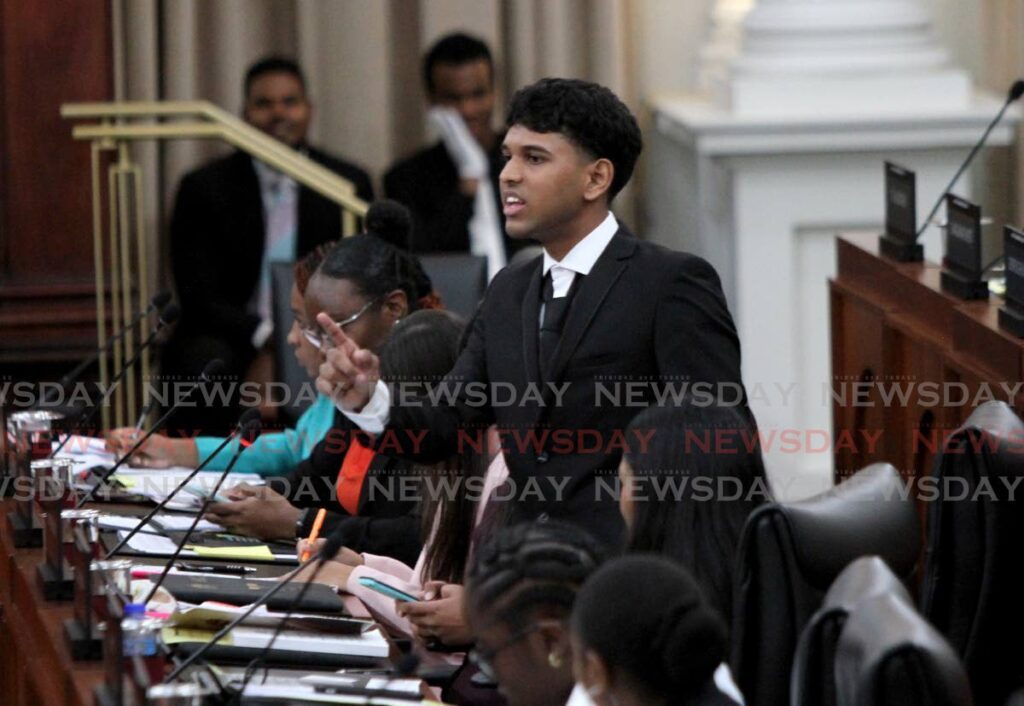Treating youths maturely

PARLIAMENT last week adjourned to a date to be fixed, but the chamber was nonetheless busy on Monday.
Students gathered for the 20th National Youth Parliament. The exercise exceeded expectations. It was a vivid showcase of the talent and bravado of our young people and a profound reminder of what is at stake in our democracy.
Political parties love to make a show of engaging youths. The PNM has a National Youth League. The UNC has a youth arm. In the build-up to every general election, youth rallies are held. Manifestos speak of “future generations.” The customary image of a political leader kissing a baby strikes at the heart of a truism: parties like to be associated with the future.
The Speaker on Monday rightly urged youths to speak up.
But youths are already speaking. The question is: are leaders listening?
Too often, people in positions of power dismiss younger generations as naïve, inexperienced or “woke” without grasping the reality that the world has changed. A good example is how Greta Thunberg’s climate activism is sometimes derided by figures in authority.
Happily, there was no shortage of speakers at Monday’s exercise. However, for every youth having their say there are others who are not.
They are subject to bullying, harassment, violence and discrimination in schools and communities. Their special needs are ignored. They may face harrowing circumstances – economic, emotional, physical – at home. Effectively silenced, they look on as others stand before the podium of life.
Our leaders need to reach them. They need to stop treating youth issues as a matter of simply ticking a box on an electoral map.
Not to engage youth meaningfully is to court disaster. There is no bigger enemy to democracy than apathy. By allowing young people to slip through the cracks, politicians open the door to chaos.
It is good to see many young officials now a part of the official cohort of our elected representatives. It is ironic, however, that very often this “fresh blood” is subject to the same ole, same ole style of politics: bacchanal and beat-down.
A great example of the disconnect are the standing orders that governed Monday’s sitting. Devised post-independence and modelled after Westminster, those quaint rules are the very symbol of what young people are up against: archaic systems, out of touch institutional cultures, and overly obsequious reverence for “the good ole days.”
The Prime Minister is 74. Kamla Persad-Bissessar, the Opposition Leader, is 71. They face the same challenge as Joe Biden, the 81-year-old US president and his adversary, Donald Trump, who is 77. All are practitioners of a political art from a different world, a different time.
For the sake of future generations, things must change.

Comments
"Treating youths maturely"